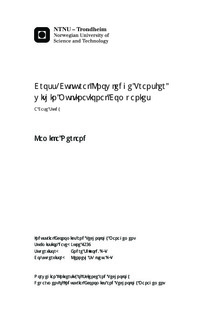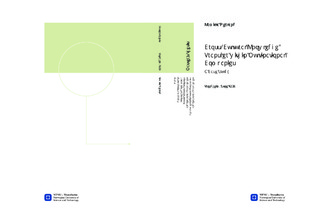| dc.description.abstract | Teamwork, knowledge and globalisation are all words that have been used more and more in recent decades, in relation to how companies and organisations are managed all over the world. It is interesting to examine not only how each of these affect the daily operations of companies separately, but also how they interact. This master s thesis will look at the cross-cultural transfer of knowledge between teams in the Norwegian company Powel, and seek to explore how team culture and team maturity affect this transfer. This research objective is put in the context of national culture. Further, the thesis will explore how team culture, team maturity and national culture have affected, and still affects, the cross-cultural knowledge transfer between teams within the Norwegian company Confirmit. The experience of the employees in Confirmit will create the foundation for general recommendations regarding cross-cultural knowledge transfer, and specific recommendations for further knowledge transfer and collaboration between the teams in Powel. The purpose of this study is to show that by being more conscious about team culture and team maturity, multinational companies might better facilitate knowledge transfer across borders and cultures, and thus perform at a higher level.
This thesis is based on the project thesis I conducted at NTNU during the fall of 2013, which was titled: How do teams work, learn and collaborate in a multinational corporation? A review of the knowledge transfer concept . The research conducted in this paper is both qualitative and quantitative, and seeks to answer the research question of this thesis: How does team culture and team maturity affect the cross-cultural knowledge transfer between teams within multinational companies, seen in the context of national culture?
This thesis addresses its research question by first giving a thoroughly review of the relevant theory. Further, I have conducted a case analysis, where two Norwegian companies use of cross-cultural knowledge transfer is studied. The case companies are Powel AS and Confirmit AS, and two teams within each of the companies are the objects of analysis. The analysis is done by performing SPGR-surveys and conducting interviews with key employees within both companies. The analysis indicates that the teams operate on a lower maturity level and that their team cultures are not optimal for the knowledge transfer process between the teams. | |

